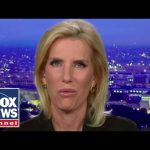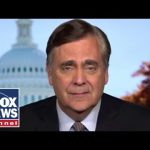In a recent discussion sparked by the nomination of Mike Huckabee as the U.S. ambassador to Israel, the focus turned to former President Donald Trump’s influence in the Middle East. Mike Huckabee, who has a long history of visiting Israel, expressed his enthusiasm about taking on this key role during a tumultuous time when tensions are high between Israel and its foes. There’s a general consensus that Trump’s return to the political scene—and Huckabee’s nomination—might signal a shift in how the U.S. engages with Israel and other nations in the region.
Huckabee emphasizes that the Middle East is like a hornet’s nest, with countries adjusting their behaviors in anticipation of a new administration. The situation is akin to having a “new sheriff in town,” one who evokes a sense of caution among long-standing adversaries such as Iran and its proxies. These players are allegedly scrambling to reevaluate their strategies now that they recognize Trump is prepared to take bold steps to reaffirm support for Israel while maintaining a hardline approach against aggressors.
The conversation also delved into the controversial role of the United Nations in global politics. Huckabee voiced his frustrations regarding the organization’s history of accommodating regimes that violate human rights, pointing particularly to Iran and China’s questionable memberships on key committees. There’s a call for a “complete reset” of how the U.S. interacts with international bodies, as Huckabee believes being unafraid and bold in standing up to these nations is paramount.
While Huckabee’s views are certainly strong, they reflect a deep-seated commitment to the idea that peace and stability in the Middle East hinge on a proactive attitude toward threats. He asserted that any efforts to contain Iranian radicalism are critical, especially considering the nation’s nuclear ambitions. The thinking is that the clock is ticking, and the U.S. needs to have a clear strategy to prevent Iran from gaining nuclear capabilities, viewing them as the primary global threat.
All of this happens when many Republicans are gearing up for a political showdown in upcoming elections.
Huckabee’s nomination and the discussions surrounding it highlight a broader strategy that not only aims for a robust foreign policy but also seeks to sway domestic policies in favor of strong national security. With figures like Huckabee stepping into the limelight again, there’s palpable optimism about the potential changes in the landscape of U.S. foreign affairs, especially regarding its relations with Israel and the Middle East.
In summary, Huckabee’s nomination could signal a refreshing, albeit contentious, chapter in American foreign policy. His enthusiastic depiction of Trump’s potential influence and the underlying call for a firmer stance against aggressors resonates with those who believe in America’s leadership role on the world stage.




